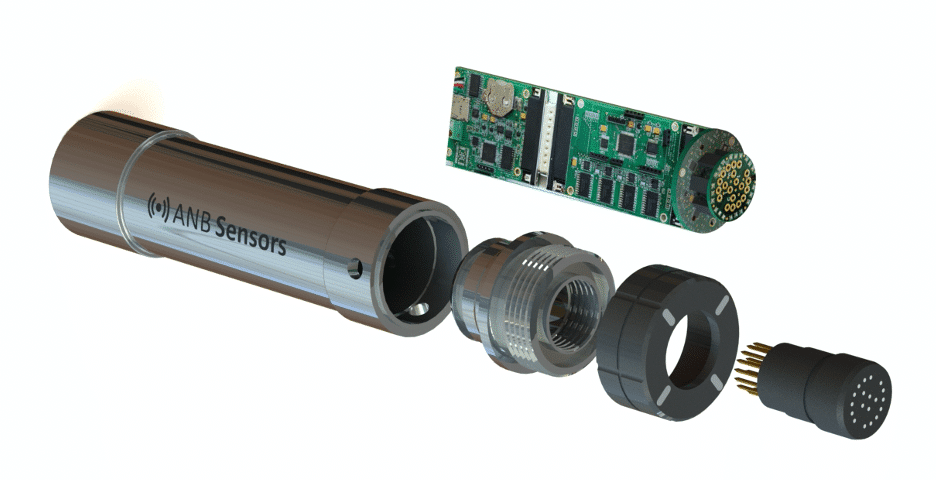S Series Ocean pH Sensor
- Ocean pH measurement is our first application. Our tech can be applied to aquaculture, freshwater, and many more.
- Sensor housing can be chosen for end user application.
- Ideal as a standalone sensor, for ROV and AUV integration or as part of a multi-sensor array and data logger system.
The S1000 series is a suite of pH sensors of varying size and specs for calibration-free monitoring of the worlds oceans and water ways. It is all solid state, can be stored wet or dry and can be easily adapted to fit any housing and application. Since 2015 R&D has been completed, as well as working prototypes produced, multiple patents granted and numerous ocean based field trials conducted
The S Series pH Sensor uses ANB’s patented technology to provide a pH sensor which is calibration free and does not suffer from reference electrode drift during its entire deployment.
The S1000 series pH sensors are mechanically robust, can be stored wet or dry and require minimal user intervention. This calibration free technology uses unique algorithms to provide the end user with real time health and performance information.
Since the beginning of the industrial revolution the ocean has become increasingly more acidic due to uptake of atmospheric CO2. It is evident there is an urgent need for in situ pH measurements to provide a high spatial and temporal resolution. However, todays ship-based measurements cannot achieve this, and whilst the introduction of intelligent and low-cost AUVs provide the platform to obtain the data, the development of small, fast, low power, and reliable pH sensors for deployment on these smaller AUV’s is lagging behind.
Today’s ocean pH sensors include optical sensors that use a dye that changes colour in different pH test fluids, an ISFET system where the current through a semiconductor device changes when hydrogen ions are present in the test fluid, and finally the standard glass electrode technology placed in a suitable housing. The colorimetric systems whilst being very accurate, are generally large and expensive and require replacement dye bags. The ISFET technology requires annual recalibrations and specific corrections for depth and salinity. The glass electrode is not very robust and requires frequent recalibration due to reference electrode drift.
ANB Sensors Ltd, a UK micro-SME, was formed based on its success in the Wendy Schmidt Ocean Health X-Prize Competition. ANB have identified and filed patents for a disruptive, enabling technology which allows for the measurement of pH in demanding aqueous media, such as drinking water and seawater. ANBs pH sensor is ideally suited for today’s AUVs as, coupled with the fact that the technology provides accurate measurements (+/- 0.01 pH units) without the need to re-calibrate, it is also packaged into a small form factor.


